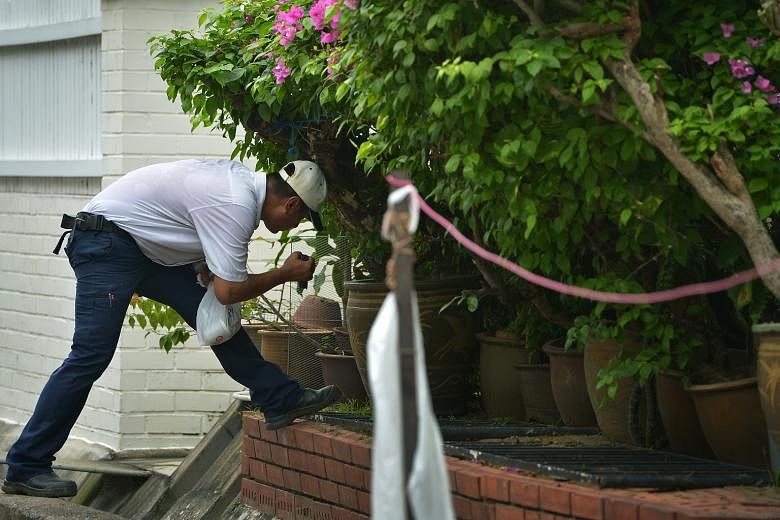Two women who were diagnosed with Zika while pregnant have given birth, and their babies have no signs of microcephaly, a birth defect linked to the virus. The mothers have also recovered from Zika.
To date, there are no reported cases of Zika-linked microcephaly in Singapore, the Ministry of Health (MOH) told The Straits Times.
The defect is marked by babies having small heads that can lead to severe developmental problems. As of Nov 1, 17 pregnant women were confirmed to have Zika, an MOH spokesman said.
"Their doctors are following up closely with them to provide support and counselling," she added.
The family of a third woman found to have Zika during her pregnancy said her unborn baby's development has been healthy so far.
MOH is exploring plans to set up a national surveillance programme to monitor the development of babies born to pregnant women with Zika.
Still, pregnant women here are not taking any risks. Ms Christine Koh, now 26 weeks pregnant, armed herself with mosquito patches, repellents and air diffusers, after the Zika outbreak here was first reported in late August.
Over two months on, the housewife, who lives in Telok Kurau, a frequent dengue cluster, still does so. She also ensures her home has no stagnant water, a breeding site for the Aedes mosquito which can spread Zika and dengue.
"Since the wet season is here, we may expect more mosquitoes. It's better for me to keep up with the measures I have adopted. They give me peace of mind," Ms Koh, 31, said. She is due to give birth in February.
Consumers are still snapping up anti-mosquito products, despite fewer new Zika cases reported.
Supermarkets and pharmacies said that while sales of anti-mozzie products have slowed in recent weeks, they remain higher than before the Zika outbreak here.
A spokesman for supermarket chain Sheng Siong said demand for such products is still about 30 per cent higher than before the Zika outbreak here, but a drop from its peak.
Dairy Farm, which runs Cold Storage and Giant, said sales of anti-mozzie products have slowed but are still two to three times higher than average compared to the pre-Zika outbreak period. At the outbreak's peak, outlets across several supermarket chains ran out of these items in early September.
Pest control firms said that while interest in their services has gone down, it remains high.
Mr Declan Ee, director of pest control firm Ikari Services, said when the Zika outbreak here was first reported in August, there was a 100 per cent jump in inquiries. This has now dipped to about 30 per cent more than usual.
Infectious diseases expert Leong Hoe Nam said: "Zika has, fortunately, raised the profile of mosquito-borne diseases."
Experts say residents should continue to look out for stagnant water.
Professor Leo Yee Sin, director of the Institute of Infectious Diseases and Epidemiology at Tan Tock Seng Hospital, said that while fewer Zika cases is a good sign, there is no room for complacency.
"A significant proportion of Zika virus infections are asymptomatic or so mildly symptomatic that symptoms are not noticeable. It is therefore important to stress environmental safety and vector control."
•Additional reporting by Seow Bei Yi

